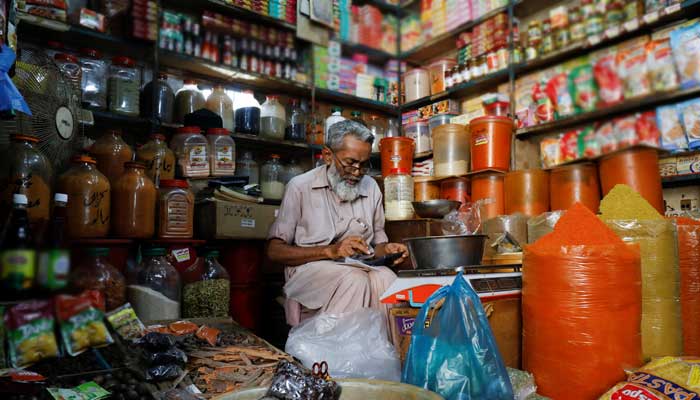Why do food prices keep going up?
A worrisome development is that data from PBS on inflation doesn't indicate slowdown in food prices
November 09, 2021

Consumer prices have shown a stubbornly upward trend, with a 9.2% increase recorded in October alone.
A worrisome development is that the data from the Pakistan Bureau of Statistics on inflation has not indicated this slowdown in food prices. In fact, statistics from October to date indicate that prices of most essential food items have increased including cooking oil (1.8%), vegetables (15%), wheat (7%), and chicken (18%).
The prices in agriculture and food sectors are also being hit hard due to rising input costs, including the prices of fuel, transportation, and storage. Even the government's own subsidised window – Utilities Stores Corporation - could not resist raising prices.
The government’s narrative on the price hike is now well-known. It believes that this phenomenon is due to global inflation impacting Pakistan through import prices and currency depreciation, pandemic-related supply chain disruptions, and cartels influencing food supplies and prices.
But this discourse does not allow the government to focus on the structural issues which are leading to, for example, shortages of wheat and sugar despite of liberal imports. The productivity gaps in the agriculture and agro processing sector have resulted in Pakistan becoming one of the largest food importers in the region.
While decisions based on the Joint Investigation Team reports to investigate mafias in the food sector still need to be expedited, a few other measures could also be taken to help ease the burden of rising prices.
A complete review of the tax regime faced by the agriculture sector is required. There are federal, provincial, and local taxes and often there is duplication in the supply chain that doesn’t let prices come down.
Second, there are loopholes in the price monitoring systems which are well-known. The mechanisms to forecast demand and the prices of essential food items do not exist at the sub-national level. The public sector has proven to be a weak manager of buffer stocks in wheat and sugar due to lack of robust inter-provincial coordination. The output from the meetings of the National Price Monitoring Committee are not evidence-driven and often rely on hearsay from the grassroots level.
Third, cartelisation in agriculture and food markets will continue to go unchecked unless stronger legislation and punitive measures are put in place. A bigger challenge is to give teeth to bodies responsible to protect consumers, including consumer courts and the Competition Commission of Pakistan (CCP).
Fourth, an evaluation into the effectiveness of Sasta bazaars, Ehsaas Rashan scheme, Itwar bazaars, online price apps and online price complaint apps, can help refine such initiatives and improve outcomes. Currently, there are reports of such bazaars carrying poor quality only to comply with lower than market prices.
Fifth, relevant economic affairs institutions need to understand the detrimental effects which abrupt border closures have on trade with neighbours, and supplies of essential items and prices. Pakistan continued to see high food prices the day land route trade between India and Pakistan had stopped. Similarly, disruptions in trade with Afghanistan and Iran also contribute to uncertainty in the food sector.
As the Prime Minister is keen to review the IMF terms and conditions, it will be timely to suggest that targeted subsidies for both the food and energy sector should remain during the short to medium term. However, mechanisms to target genuine beneficiaries need drastic improvement for which relevant line ministries may be tasked. A food security dashboard is now already available with the food ministry which could be improved overtime with better data from district administrations.
Dr. Vaqar Ahmed is an economist and former civil servant. He tweets @vaqarahmed











